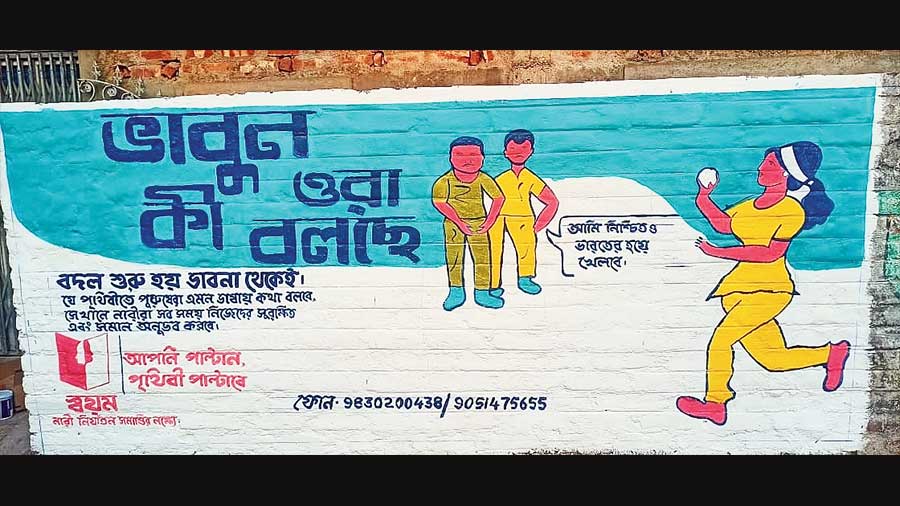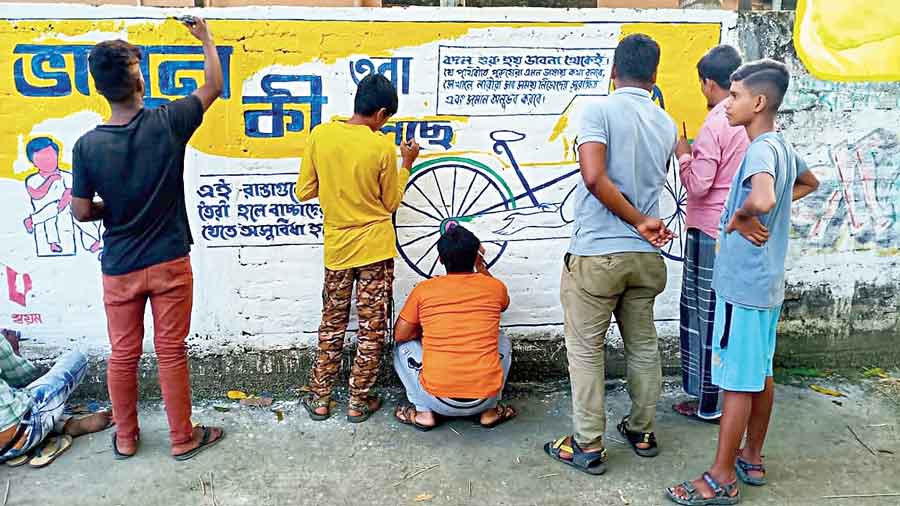A group of boys and girls painted graffiti in neighbourhoods in the city and in the districts against sexual harassment, violence against women and a change in the way men think to raise awareness for equality.
The drive is an initiative by women’s right’s organisation Swayam, which works with men and boys to educate them on gender equality and tell them that if they start believing in and practising equality, they will have better relationships and lives.
Patriarchy undermines both men and women. When boys talk to their peers or work collectively, it will initiate change in society and in the way men think, said the head of the organisation.
The group has painted graffiti in areas like Kidderpore, Metiabruz, Maheshtala in southwest Kolkata and Diamond Harbour on the southern fringes to begin with.
While some walls depict images about harassment that women face in workplaces or on the streets, others have men appreciating women for taking a lead role financially and running the family.
One shows two male taxi drivers who see a woman auto driver and say: “On her is the responsibility of running the family.”

Another graffiti in the neighbourhood. Telegraph picture
“No man is born misogynist. It is the socialisation process that teaches men to discriminate. We are not against men but against patriarchy. Patriarchy puts pressure on men, too, to behave in a certain way,” said Anuradha Kapoor, director, Swayam.
The organisation also asks men how women behave around them. Some have shared how women are sometimes not their natural selves in their presence or maybe are more conscious, which indicates that they may not be comfortable.
“When they come up with these situations, we ask them how it makes them feel. Not because the men were about to do something they should not, but because the women presume they might. Men carry the burden of not being trustworthy,” said Kapoor.
The organisation believes that the graffiti is able to attract a fair amount of attention from residents of the neighbourhoods.
“People at least stand and read. We cannot change the thinking of an entire neighbourhood overnight but even if two people change, it will initiate the process,” said Rahul Goswami, who played a key role in organising the graffiti.
“While we have messages on harassment that women face, through another set of graffiti we are trying to give a message that men are changing the way they think. That positive reinforcement is also required and would make men think,” he said.
